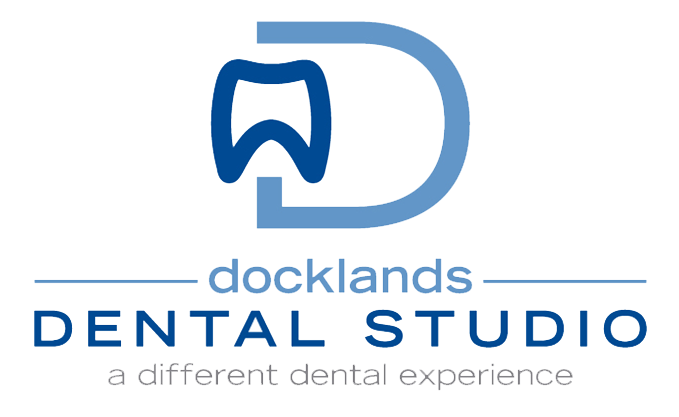The third molars earned the moniker “wisdom teeth” due to the fact that they tend to erupt in the late teens to early twenties. At one time, this was deemed an age by which we should all be properly grown, and wise as can be! This may seem laughable today, but there’s no denying the fact that they are the last permanent teeth to erupt in our mouths. Childhood’s endless parade of newly erupting adult teeth can finally be declared complete with the arrival of the third molars. These four teeth erupt at the back-most part of the mouth, one on each side, top and bottom.

The odd thing about the wisdom teeth, however, is that many of us don’t have room in the jaw to hold them. This can lead to problems that cause pain, bone damage, overcrowding, and malocclusion.
Why do we grow them if they are not necessary? Over the past several thousand years, humans have begun to grow smaller jaws. We simply don’t use our teeth in the same ways that we once did. We don’t consume as many unprocessed grains and fibrous vegetables. Nor do we consume the same amount of organ meat to provide the nutrients that encourage jaw growth. Our jaws have shrunk, but our bodies still grow the same number of teeth to fit into those jaws. As a result, many patients’ wisdom teeth overcrowd the jaws, become blocked by other teeth, or attempt to erupt sideways.
It’s a curious side-note that there are many people who don’t grow wisdom teeth. Not having one or more of the wisdom teeth tends to be more prevalent in specific ethnic backgrounds. For example, with indigenous Mexicans, wisdom teeth are rare. As high as 10 percent of the worldwide population may be born without one or more wisdom teeth.
Reasons for Extracting the Wisdom Teeth
Wisdom teeth do not need to be extracted as a matter of routine. Many people keep them and take good care of them throughout their whole life. However, patients have a lot of good reason for wanting to have them extracted when they are young.
- My wisdom teeth are erupting badly and causing pain.
- I don’t want them to cause problems later in life.
- I don’t want to undo all the orthodontic treatments I’ve already invested in.
- My mother’s wisdom teeth became painfully impacted.
- My molars are prone to decay.
Problems with Impacted Wisdom Teeth
When wisdom teeth are blocked from erupting, this is called impaction. This happens when there is not enough room in the back of the mouth. They may attempt to erupt sideways or be blocked by other teeth entirely.
Some of the most common complications of impacted wisdom teeth are:
- Swollen, bleeding, red, or tender gum tissue
- Jaw pain
- Cysts that develop in the jaw and damage the bone
- Decay and gum disease at the site of the partially erupted teeth
Should Everyone Have Their Wisdom Teeth Removed?
Removing the teeth nature gave you should, by no means, be considered necessary for all. There are many patients who keep their wisdom teeth and never experience any complications or decay. However, molars are harder to keep clean than other teeth, in general, due to their position and deep ridges. The third molars are farther back than the other molars, so they may be even more prone to decay than the first and second.
The decision to keep or extract your wisdom teeth, should be based on:
- Their position relative to other teeth, and whether you have room in your jaw to hold them.
- Whether your teeth are prone to overcrowding in general.
- The extent to which you are committed to keeping them clean and well-maintained with routine dental visits.
How Can I Decide Whether to Keep My Wisdom Teeth?
The decision to keep or extract the wisdom teeth should always be informed by a professional opinion. A dentist or oral surgeon can assess your case and tell you whether you may be more likely to experience eruption problems.
When we treat children and teenagers, we take x-rays as a part of their routine care. Over time, these x-rays let us monitor the growth of the jaw, facial bones, and wisdom teeth. If we suspect the wisdom teeth will not have ample room to erupt, we will let you know why, as well as the ideal time to extract them.
What is the Best Time for Wisdom Teeth Extraction?
This question may be of special interest to you if you are a parent. Should you wait and see if your child’s wisdom teeth come in correctly before deciding? If you do choose to have them removed, does it matter when you schedule the extractions?
The optimal time for extraction is when the wisdom teeth are about two-thirds fully grown. Surgical extraction is less traumatic to the gums and jawbone if you remove the teeth before the roots are fully grown. Waiting until the teeth have grown their roots means they will be more tightly lodged in the jaw and facial bones. Patients usually have an easier healing and recovery period when the wisdom teeth are removed at this stage of development. It is most certainly possible to have the wisdom teeth extracted at an older age, but the longer they sit in the jaw, the more difficult they are to extract.
However, the optimal age for wisdom teeth removal will vary based on a patient’s individual growth and development. Some patients’ wisdom teeth may reach this stage by age 15, while others aren’t ready until age 18 or 20. If your child has always been slightly ahead of his peers in tooth eruption, he may be ready sooner, rather than later. Inquire with your dentist if your child is 16 or older and he or she hasn’t broached the subject with you yet.
Planning for Wisdom Teeth Extraction
Wisdom teeth removal is a bit more complicated than the extraction of an erupted tooth. Because it requires cutting the gum tissue, it is a surgical procedure and will require appropriate anesthesia and a significant healing period afterward.
After a wisdom teeth removal, the patient will experience post-operative pain, and will need several days to recover. During that time there may be swelling, light bleeding, soreness, and an inability to eat normal foods.
Patients may need multiple weeks to resume their normal eating habits, and this can disrupt their daily routine. For these reasons, we advise patients and caregivers to take some time off work and school to accommodate the recovery period. School holidays are often a good time to have wisdom teeth removed—or any other time of the year when you can easily take a week off to rest and recuperate.
Contact Docklands Dental Studio for a Consultation
Schedule an appointment with one of our doctors at Docklands Dental Studio to learn more about wisdom teeth. Call our office at 0488-799-487 to make an appointment.
Docklands Dental Studio is conveniently located in the Victoria Harbour Precinct in Docklands, Melbourne. It is easy to get to us from Southbank via cars (through the city or M1, then take Wurundjeri Way) or by foot (a 20-minute walk).
Also published on Medium.
